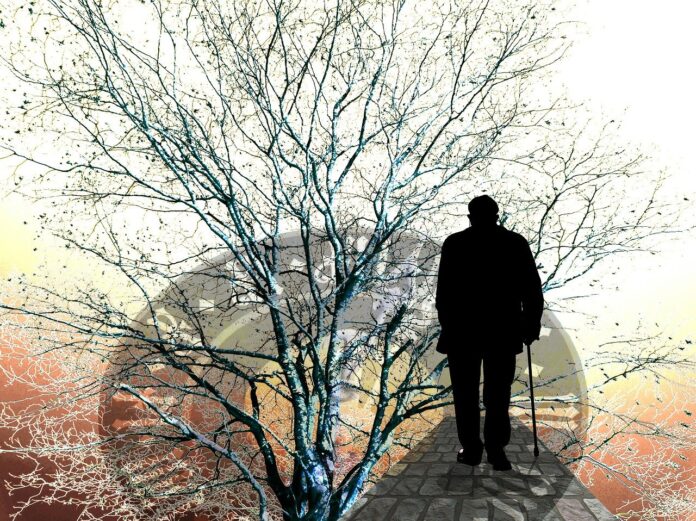Virginia will become one of the few state-backed registries that collects data on patients with dementia, Alzheimer’s disease and other neurodegenerative disorders, in order to improve brain health and caregiving.
Annie Rhodes was a doctoral student at Virginia Commonwealth University, where she now teaches, when she first noticed a gap in such collected data — not just in the state, but around the country. “We just don’t know how many people have dementia,” Rhodes said. “We have some ideas but we just don’t know.”
Rhodes knew a registry would be possible with funding and support, which ultimately led to the Virginia Memory Project, or VMP. An estimated 190,000 people aged 65 and older in Virginia have Alzheimer’s, according to the Alzheimer’s Association, but not all are getting the help they need, nor are their caregivers.
“We can’t help, we can’t address, we can’t prevent unless we know that,” said Ashley Staton, VMP social worker and dementia education specialist for VCU.
House Bill 1455 creates state support for the project. The measure is likely to pass Gov. Glenn Youngkin’s desk after it received unanimous support in both chambers. It has an effective date of January next year.
The legislative support will help advance the conversation around neurodegenerative disorders, according to Staton.
The bill reaffirms the work that is already being done and might spark progress nationwide, according to its patron Del. Betsy Carr, D-Richmond. “I think that this kind of thing will be an opportunity to provide a model for other states,” she said.
Project funding did not make the final budget passed by the General Assembly, but the team hopes to eventually receive state funds. “Having that support gives us a drive to evaluate where we really need to put resources so that we can go back and ask for a budget next year,” Staton said.
Rhodes and Staton work with VCU faculty and personnel from the state Department of Health. They also work with a minister, a geriatrician, data scientists and a gerontology team to collect data and connect patients to services.
The VMP registry is built on data from medical service providers, caregivers and voluntary self-enrollment. Undiagnosed people with memory concerns can take the questionnaire, as well as anyone who wants to enroll. That helps with baseline data, Rhodes said.
The data is confidential, and a name is optional. Rhodes hopes better data can lead to “ramping up the number of services that we can provide.” “It wasn’t just about us taking something from the community, it was about returning,” Rhodes said.
Minority communities are disproportionately affected by these disorders, due in part to social factors, such as low income and environmental justice issues, not genetic factors, according to Staton. “I could go on and on about the disparities that lead to that,” Staton added. “But they’re racial, and they’re social, and they’re economic, and it doesn’t help when you add age to the equation.”
A registry can help with evaluation, planning and intervention, according to Daniel Bluestein, the VMP geriatrician advisor. But, dementia registries are scarce because the diagnosis is clinical. That can make the diagnosis harder, and more subjective than a disease such as cancer, which is determined via biopsy, he said.
“You’re going to have people who don’t identify as patients, or they have memory concerns and they don’t want to bring them up,” Bluestein said. “There is a lot of discomfort with doing that on the part of both patients and providers.”
This discomfort is often placed on caregivers, who are not always best suited to have those emotional conversations, according to William Donaldson, a Virginia-based educator and caregiver advocate. He wrote the book “Estimated Time of Departure.” “Let’s not put that burden on them who already have a very emotional heavy burden to carry,” Donaldson said.
Donaldson became the executor of his parent’s estate when they were healthy, and said he quickly learned it is a “very common problem” that people avoid discussion around end-of-life care. “It just struck me as very, very odd that here’s something that we’re all going to experience and yet we don’t talk about it effectively,” he said.
There are an estimated 351,000 unpaid caregivers in Virginia, which includes spouses and relatives caring for someone with Alzheimer’s and related diseases, according to VMP data. Many don’t have the resources or experience to help with memory health.
Rhodes worked as a caregiver prior to her academic career. “I saw first-hand the lack of support and knowledge and infrastructure for people living with dementia and for their caregivers, both formal and informal,” Rhodes said. “It absolutely has galvanized me to do something about it.”
By Parker Barnes / Capital News Service

